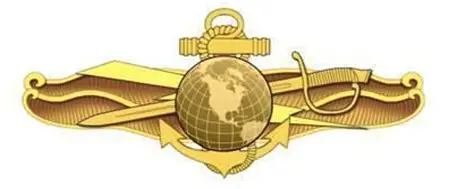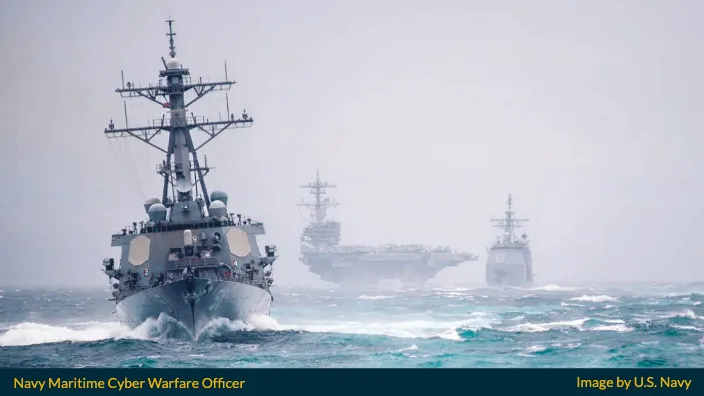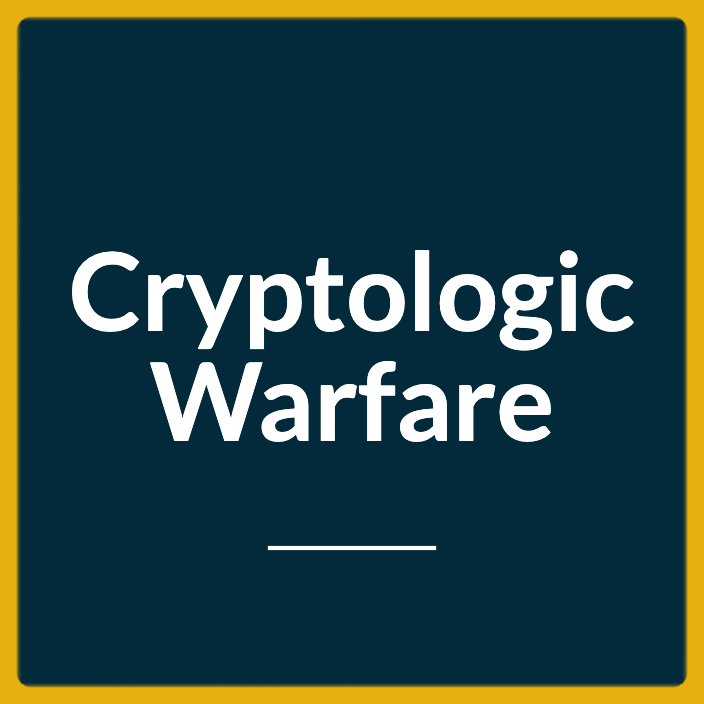This guide provides up-to-date information to help you make an informed decision about becoming a Navy Maritime Cyber Warfare Officer (MCWO) during Fiscal Year 2025.
These days, with everything going digital, the Navy is facing more and more cyber threats that keep changing. That makes MCWOs super important right now.
Since enemies around the world are trying to mess with networks, data, and communications, MCWOs are the ones stepping up to keep the Navy’s systems safe.
They’re out there defending secure networks, making sure communications stay locked down, and even launching counter-attacks when needed. Their work is key not just for military missions but for the whole country’s security too.
If you’re into cybersecurity and want to be part of defending against digital threats, this role gives you serious responsibility and a chance to lead in the fight.
What is a Maritime Cyber Warfare Officer?

A Navy Maritime Cyber Warfare Officer (MCWO) is a highly trained expert who handles both defending and attacking the Navy’s cyber and electronic systems.
As a Restricted Line Officer, an MCWO’s main job is to make sure that the Navy’s key communication networks and data systems are secure and ready to go, keeping the fleet fully operational.
MCWOs take charge of Cyberspace Operations (CSO), handling both Offensive (OCO) and Defensive Cyberspace Operations (DCO).
They lead and serve in operational roles within the Cyber Operation Force (COF) and Cyber Mission Force (CMF), which includes working with National Mission Teams (NMTs), Cyber Mission Teams (CMTs), Cyber Protection Teams (CPTs), and Cyber Support Teams (CSTs).
Their big focus is on protecting Navy missions by keeping cyber defense systems strong and ready for anything—whether it’s defending against attacks or launching them. This role is super important for guarding the Navy’s communication networks, info systems, and all the critical data they rely on.
Career Path
As an MCWO, officers get to work in all kinds of tech and strategy roles, both on land and at sea. Their career path offers chances to dive into specialized training, grow as leaders, and take on jobs like handling cyber warfare, managing networks, securing information, and running security ops.
Some of the key roles they might have include:
- Leading teams focused on cyber defense.
- Managing network security and responding to incidents.
- Planning and carrying out cyber offense and defense strategies.
- Providing cyber intel to support naval missions.
Plus, MCWOs can go after graduate degrees and advanced certifications, giving them a chance to specialize even more in areas like AI, machine learning, and cybersecurity law.
Senior MCWOs can look forward to opportunities for O5 Command, Major Command, and senior staff roles at places like Fleet Cyber Command (FCC), Joint Force Headquarters Cyber (JFHQ-C), and US Cyber Command (USCC).
Duty Stations
Maritime Cyber Warfare Officers can be stationed all over the world, offering vital cybersecurity support to shore-based units and naval forces out at sea. Some of the places they might be assigned include:
- Cyber Command units.
- Fleet Cyber Command.
- Naval Special Warfare teams.
- National security agencies.
- Navy ships and submarines.
These naval officers play a key role wherever they go, making sure the Navy’s cyber defenses are strong and ready to protect important missions.
Navy Maritime Cyber Warfare Ranks
| Pay Grade | Navy Rank | Abbreviation |
| O-1 | Ensign | ENS |
| O-2 | Lieutenant Junior Grade | LTJG |
| O-3 | Lieutenant | LT |
| O-4 | Lieutenant Commander | LCDR |
| O-5 | Commander | CDR |
| O-6 | Captain | CAPT |
How It Breaks Down:
- O-1 to O-3: Brand-new officers start at Ensign (O-1). By Lieutenant (O-3), they’re leading teams, running divisions.
- O-4 to O-6: Lieutenant Commanders (O-4) take on bigger roles. Commanders (O-5) lead departments. Captains (O-6) run major commands.
This is Navy-specific. The other branches do it differently.
Salary and Benefits
2025 U.S. Navy Officer Pay Chart (First Six Years)
| Pay Grade | <2 Years | Over 2 Years | Over 3 Years | Over 4 Years | Over 6 Years |
| O-1 | $3,998.40 | $4,161.90 | $5,031.30 | $5,031.30 | $5,031.30 |
| O-2 | $4,606.80 | $5,246.70 | $6,042.90 | $6,247.20 | $6,375.30 |
| O-3 | $5,331.60 | $6,044.10 | $6,522.60 | $7,112.40 | $7,453.80 |
| O-4 | $6,064.20 | $7,019.70 | $7,488.90 | $7,592.40 | $8,027.10 |
| O-5 | $7,028.40 | $7,917.30 | $8,465.40 | $8,568.60 | $8,910.90 |
Notes:
- A 4.5% pay raise is effective January 1, 2025.
- Officers with 4+ years of prior enlisted or warrant officer service (O-1E, O-2E, O-3E) earn more. Example: O-1E (4+ years) makes $5,031.30 monthly.
- Future pay changes depend on legislation. Check DFAS.mil for updates.
Additional Pays and Allowances
- Basic Allowance for Housing (BAH): Covers housing costs for those living off-base. Amount depends on rank, location, and dependents.
- Basic Allowance for Subsistence (BAS): Helps cover meal costs. 2025 officer rate: $323.87/month.
- Hazardous Duty Incentive Pay (HDIP): Extra pay for dangerous jobs—flight decks, EOD, etc. $150–$250/month.
- Career Sea Pay: For shipboard or deployed sailors. $50–$750/month, based on rank and time at sea.
- Special & Incentive Pays: Extra cash for specific skills (e.g., air traffic control, language proficiency). Ranges from a few hundred to several thousand dollars annually.
- Overseas Cost of Living Allowance (COLA): Extra pay to offset higher living costs in foreign duty stations. Varies by location, rank, and dependents.
Benefits
- Healthcare: Free medical and dental for active duty. Low-cost TRICARE options for families.
- Housing: On-base housing or tax-free BAH for off-base living.
- Food: BAS provides a monthly food stipend.
- Blended Retirement System (BRS): Pension + Thrift Savings Plan (TSP) contributions. Retirement pay kicks in at 20 years.
- Education: Tuition assistance, Post-9/11 GI Bill, and Navy College Program support higher education.
- Life Insurance: SGLI covers up to $500,000.
- Vacation: 30 days of paid leave per year, plus federal holidays.
All rates and benefits are subject to change with future legislation.
Training Pipeline
Anyone aiming to become a Maritime Cyber Warfare Officer kicks things off with some serious officer training and specialized tech courses.
Officer Candidate School (OCS)
Location: Newport, Rhode Island
Duration: 12 weeks
Here, the focus is on building leadership skills, learning about naval operations, and understanding military professionalism.
Cyber Warfare Fundamentals Course
Location: Various Navy Cyber Training Facilities
This advanced course dives deep into the must-have skills for MCWOs, covering everything from cyber defense and network operations to threat analysis. It’s where officers really sharpen the tools they need for their future in cyber warfare.
The training pipeline for Maritime Cyber Warfare Officers is still being developed.
Currently, courses under consideration include the Joint Cyber Analysis Course (JCAC), which is 27 weeks in Pensacola, FL, the Cyberspace Operations Planner Course (COPC) for 3 weeks in Pensacola, FL, and the Information Warfare Basic Course (IWBC) for 3 weeks in Virginia Beach, VA.
After finishing training, you’ll likely be assigned to a 36-month cyber tour, most often at Ft. Meade, Maryland, or Kunia, Hawaii.
During this first tour, officers must complete the MCWO Qualification Program within 18 months and the Information Warfare Officer (IWO) Qualification within 24 months.
Navy Maritime Cyber Warfare Officer Requirements

While the basic eligibility requirements are clearly outlined, competitive applicants often bring additional qualifications that set them apart.
For example, certifications such as the Certified Ethical Hacker (CEH) and Offensive Security Certified Professional (OSCP) can give candidates a significant edge, demonstrating their practical ability to penetrate and defend networks.
Additionally, work experience on cyber protection teams (CPTs) or in roles that involve penetration testing, ethical hacking, and network vulnerability assessments is highly valued.
MCWOs are expected to possess not only technical acumen but also a deep understanding of military operations, making leadership experience, whether in civilian or military contexts, an important aspect of the selection process.
For candidates from the enlisted ranks, submission of their most recent enlisted performance evaluations is required to validate their military experience.
The basic eligibility requirements below are current as of June 2024, per the Navy Personnel Command. Waivers for some requirements are possible in exceptional cases.
Citizenship
Applicants must be U.S. citizens.
Gender
There are no gender restrictions for the MCWO program.
Age
Applicants must be at least 18 years old and no older than 42 years at the time of commissioning. Age waivers may be considered on a case-by-case basis.
Time in Service
If you’re applying from enlisted service, you can’t have more than 12 years (144 months) of qualifying service. But, there’s a chance to get a waiver that extends that limit to 14 years (168 months).
Education
Alright, so here’s the deal—you need a bachelor’s degree from an accredited school. They’re really into degrees like computer science, cybersecurity, info systems, or software engineering, but honestly, if it’s tech-related, you might still be in the running.
Now, about your GPA—they want it to be at least a 3.0. But if you’ve got something between 2.7 and 3.0, don’t freak out; a waiver could be possible. And hey, if you’ve got a grad degree with a 3.0 or better, that could totally cover for a lower undergrad GPA.
Physical Requirements
Candidates must meet the Navy’s physical standards and be eligible for worldwide assignment, as outlined in the Medical Department Manual, Chapter 15.
Officer Aptitude Rating (OAR)
Applicants need to score at least 50 on the OAR exam, but waivers might be given for scores as low as 40, depending on other qualifications they have.
If you’re aiming for a good score on the OAR, you should definitely check out this OAR prep course—it’s a great way to boost your chances of success. It’s the only one that our community found to be helpful at all.
Work Experience
Having experience in fields like computer science, cybersecurity, info systems, or software engineering is a big plus.
If you’ve got skills in network security, penetration testing, or systems administration, you’ll get extra attention too.
Leadership Experience
Having a solid track record of leadership or supervisory experience—whether in the military, school, or civilian jobs—is highly preferred.
Security Clearance Eligibility
Applicants have to meet the Director of National Intelligence (DNI) standards to access sensitive compartmented info.
This means you’ll need to pass a background check and submit an SF-86 form, filled out within the past two years. Dual citizenship isn’t always a deal-breaker, but any risks will be looked at individually.
Service Obligation
If you’re selected, you’ll have to commit to eight years of active duty, starting from your appointment date.
This covers everything from training to operational duties, and even time spent on further education if you go for it.
More Information
If you’re thinking about joining the Navy as a Maritime Cyber Warfare Officer, the next move is to reach out to a Naval Officer Recruiter. They’ll help you through the application process, let you know what documents you need, and answer any questions you’ve got.
It’s also worth checking out other similar Navy roles, like Cyber Warfare Engineer or Information Professional Officer, if you want to keep your options open.
Hope this guide helped you out with your career plans!

